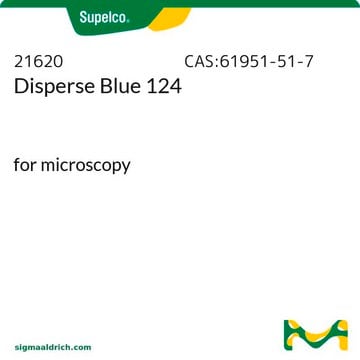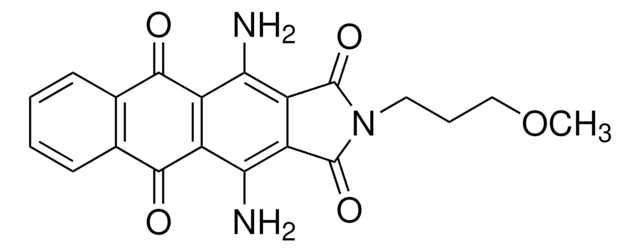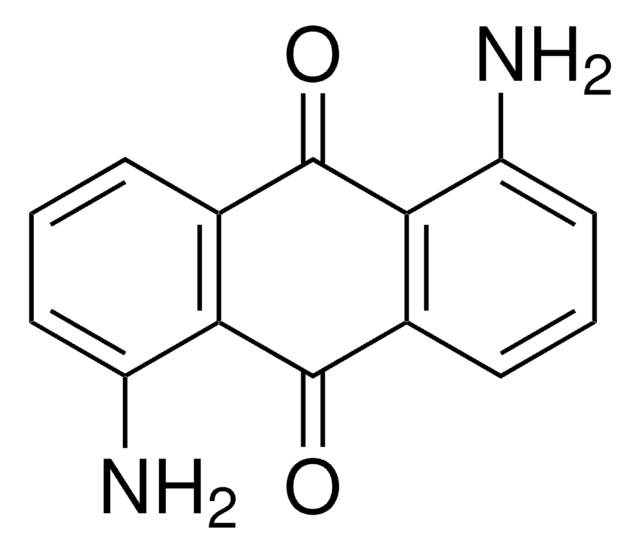215643
Disperse Blue 1
Dye content 30 %
Synonym(s):
1,4,5,8-Tetraaminoanthraquinone
About This Item
Recommended Products
form
powder
composition
Dye content, 30%
mp
332 °C
solubility
1 M NH4OH: 10 mg/mL, opaque, blue
λmax
607 nm
application(s)
diagnostic assay manufacturing
hematology
histology
storage temp.
room temp
SMILES string
Nc1ccc(N)c2C(=O)c3c(N)ccc(N)c3C(=O)c12
InChI
1S/C14H12N4O2/c15-5-1-2-6(16)10-9(5)13(19)11-7(17)3-4-8(18)12(11)14(10)20/h1-4H,15-18H2
InChI key
JSFUMBWFPQSADC-UHFFFAOYSA-N
Looking for similar products? Visit Product Comparison Guide
General description
signalword
Danger
hcodes
Hazard Classifications
Carc. 1B - Eye Dam. 1 - Skin Irrit. 2 - Skin Sens. 1
Storage Class
6.1C - Combustible acute toxic Cat.3 / toxic compounds or compounds which causing chronic effects
wgk_germany
WGK 3
flash_point_f
Not applicable
flash_point_c
Not applicable
ppe
Eyeshields, Faceshields, Gloves, type P3 (EN 143) respirator cartridges
Choose from one of the most recent versions:
Certificates of Analysis (COA)
Don't see the Right Version?
If you require a particular version, you can look up a specific certificate by the Lot or Batch number.
Already Own This Product?
Find documentation for the products that you have recently purchased in the Document Library.
Customers Also Viewed
Our team of scientists has experience in all areas of research including Life Science, Material Science, Chemical Synthesis, Chromatography, Analytical and many others.
Contact Technical Service












